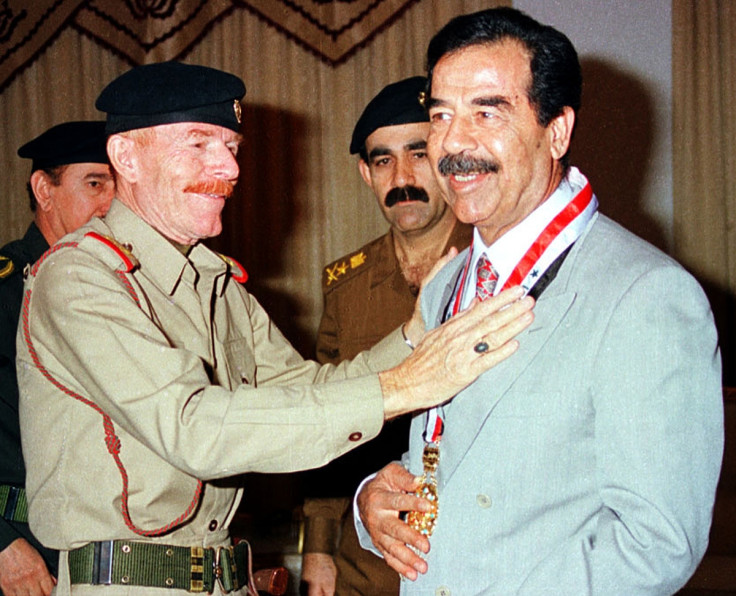Not Only Isis: Meet Saddam Hussein's Former Generals Helping the Sunni Insurgency

Credible leaks by a Twitter account run by an Isis insider about the militants' strategy in Iraq have shed a light on a possible fragile alliance between jihadists and former loyalists to executed dictator Saddam Hussein.
The Twitter account @wikibaghdady claimed that a "meeting between Isis and Naqshbandi Army near al-Qayara area south of Mosul had taken place with representatives from Izzat Ibrahim al-Douri and Baghdadi".
Al-Douri is a former top military commander and vice president in the Baathists' Hussein government. He has been in hiding since, but reports are emanating that he has returned to head The Naqshbandi Army, known by their Arabic acronym JRTN, a homegrown Sunni coalition based in Mosul.
Unlike Isis which is formed mainly by foreign fighters united by the common jihadi cause to establish a Sunni caliphate in the Levant, JRTN is a deeply rooted network with strong social and cultural ties to areas under insurgent control. The group, established by former members of Hussein's Baath party disbanded in 2007, easily won support among ordinary Sunnis who felt disenfranchised by Maliki's sectarian and authoritarian policies.
A tribal leader in Diyala province told the New York Times: "Isis are extremists and strangers. The Naqshbandis are not strangers...They have been good strategy in cooperating with the people."
During the pullout from Iraq, American officers often warned about the Baathists' ability to seize upon Sunni grievances and pose a challenge to Maliki government. In 2010, Lt. Col. Michael A. Marti said the group "had a more cohesive military-like structure than al-Qaeda".
Naturally, the Baathists' role is limited in an insurgency where Isis has strongly taken the lead. Nonetheless, the strategic and grassroots support of JRTN helps explain why only a few thousand Sunni fighters have been so swift in seizing vast swaths of territory unchallenged.
One may wonder why a group which positioned itself as secular guardian of Sunni Arab nationalism decided to share the bed with transnational jihadists. An officer of Maliki told AFP that ideological differences are put aside in this phase, according to the maxim: "the enemy of my enemy is my friend".
Both sides, so distant in their ideological principles, are determined to get rid of Shia leader Maliki and put an end to what they see as a dangerous influence of neighbouring Iran.
"Our problem is with Maliki, and we will take him down and anyone that stands next to him," said Abu Abid al-Rahman, a Naqshbandia leader in northern Iraq, in an interview.
The two sides, however, are unlikely to share power in areas that have been seized. Baathists are secular and nationalists and could not possibly live under the harsh Sharia law that has already been imposed in Nineveh province.
Analyst Hassan Hassan translated @wikibaghady's assertion that the two groups have agreed to put the Naqshbandi in power of a ruling coalition in the event of an overthrow of al-Maliki's Shia administration.
He is cautious about such an alliance as Isis "considers that Baathists follow an un-Islamic ideology", suggesting that the relationship would not be able to rise to one of shared governance.
"We are fighting now with ISIS, but we are protecting Iraq from their religious ideas," Abu Tulayha al-Obaidi, a Naqshbandia fighter in northern Iraq, told the New York Times. "We will not kill innocent people, or soldiers who put down their weapons. We are like the new brain of ISIS."
© Copyright IBTimes 2025. All rights reserved.






















